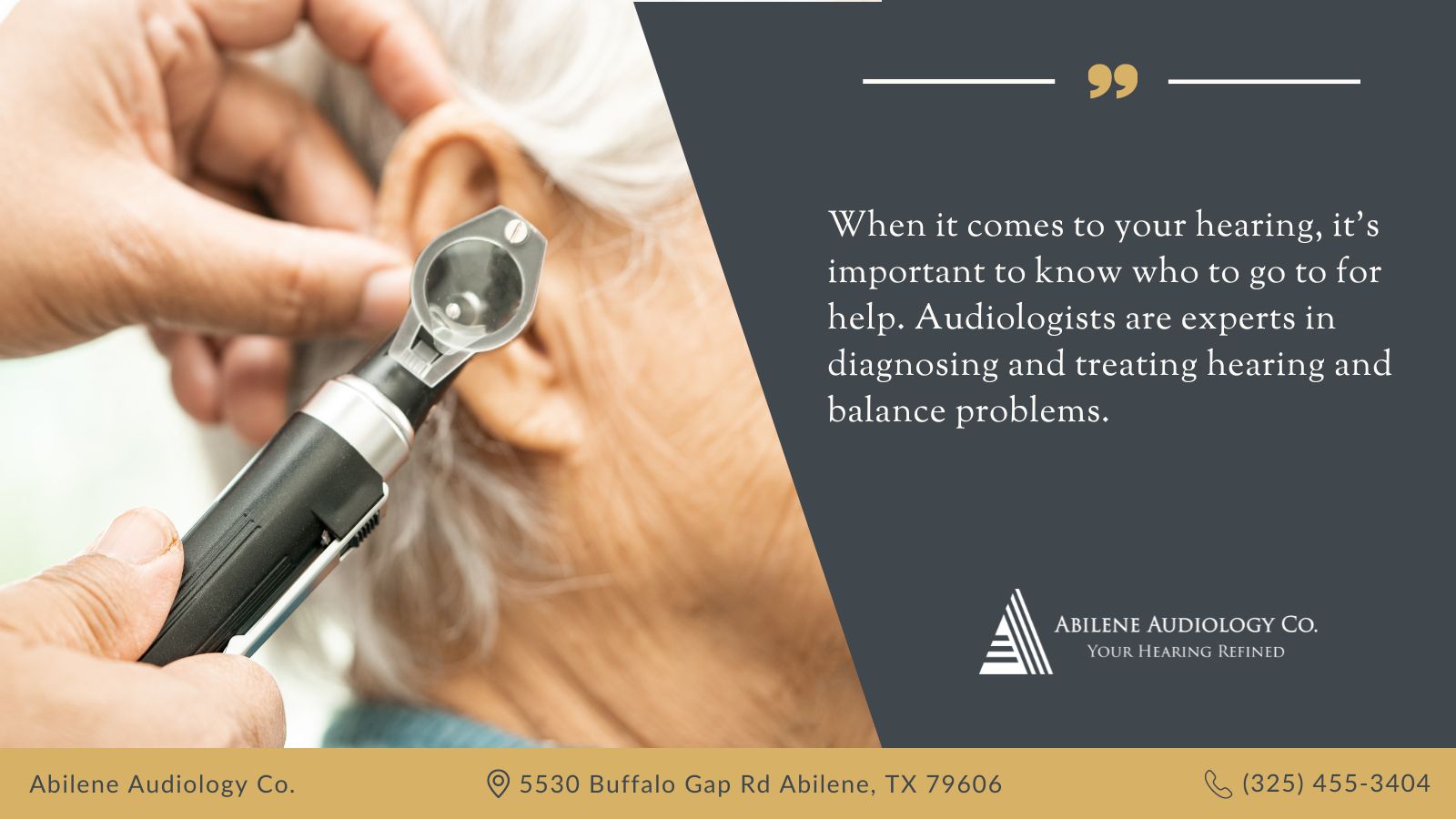Hearing loss is a common problem that affects many people around the world. Because of this, the need for experts who can help is growing. Audiologists are special healthcare professionals who focus on hearing and balance issues.
In this article, we will explain what an audiologist does, how they are different from other hearing experts, and why they are important in hearing care.
Who is an Audiologist?
An audiologist is a healthcare worker who focuses on hearing and balance issues. They have advanced education, like a Doctor of Audiology (Au.D.) or a Master’s degree. Audiologists are trained to test, diagnose, and treat these problems in people of all ages.
They work in many places, such as hospitals, clinics, schools, and research centers, to provide complete hearing care.
What Do Audiologists Do?
Here are some of the main jobs of an audiologist:
Hearing Tests
One important job of an audiologist is to check how well you hear. They use special tools to find out how good your hearing is and what kind of hearing loss you might have. This helps them decide the best way to help you.
Hearing Aids
Audiologists are also experts in hearing aids. They help you pick the right hearing aid, fit it correctly, and adjust it to meet your needs. They continue to help you by making sure the hearing aid works well over time.
Tinnitus Help
Tinnitus is when you hear ringing or buzzing in your ears. Audiologists can help manage this by suggesting ways to make the noise less bothersome.
Balance Testing
Audiologists can also test your balance, especially if you feel dizzy or have vertigo. They use tests to see if the problem is related to your inner ear.
Counseling and Support
Audiologists not only treat hearing loss but also help you and your family understand it better. They teach you how to handle hearing loss and improve your daily life.
How Audiologists Are Different from Other Hearing Professionals
Audiologist vs. Hearing Aid Specialist
Both audiologists and hearing aid specialists help people hear better. Still, they have different levels of training and do different things:
- Education: Audiologists usually have a doctoral degree. Hearing aid specialists might only need a high school diploma or an associate’s degree.
- Work: Audiologists can diagnose and treat many hearing and balance issues. Hearing aid specialists mainly focus on fitting and selling hearing aids.
- Licensing: Audiologists are licensed healthcare professionals who need to keep learning to keep their license. Hearing aid specialists also need a license, but their training can be different depending on the state.
Audiologist vs. ENT Doctor
ENT (Ear, Nose, and Throat) doctors, also called otolaryngologists, are medical doctors who treat many different problems, not just hearing issues:
- Education: ENT doctors go to medical school and train as surgeons, while audiologists focus only on audiology.
- Medical Work: ENT doctors can do surgeries, like ear surgery or cochlear implants. Audiologists do not do surgery.
- Specialty: Audiologists focus only on hearing and balance issues. ENT doctors treat many conditions in the ear, nose, and throat areas.
Audiologists in Abilene, TX
When it comes to your hearing, it’s important to know who to go to for help. Audiologists are experts in diagnosing and treating hearing and balance problems. They offer many services to help you hear better and enjoy life more.
If you are in Abilene, TX, and need help with your hearing, the audiologists at Abilene Audiology are here to help. They can assist you with hearing tests, hearing aids, and more.
Contact Abilene Audiology Co. today to schedule an appointment with one of our expert audiologists.

